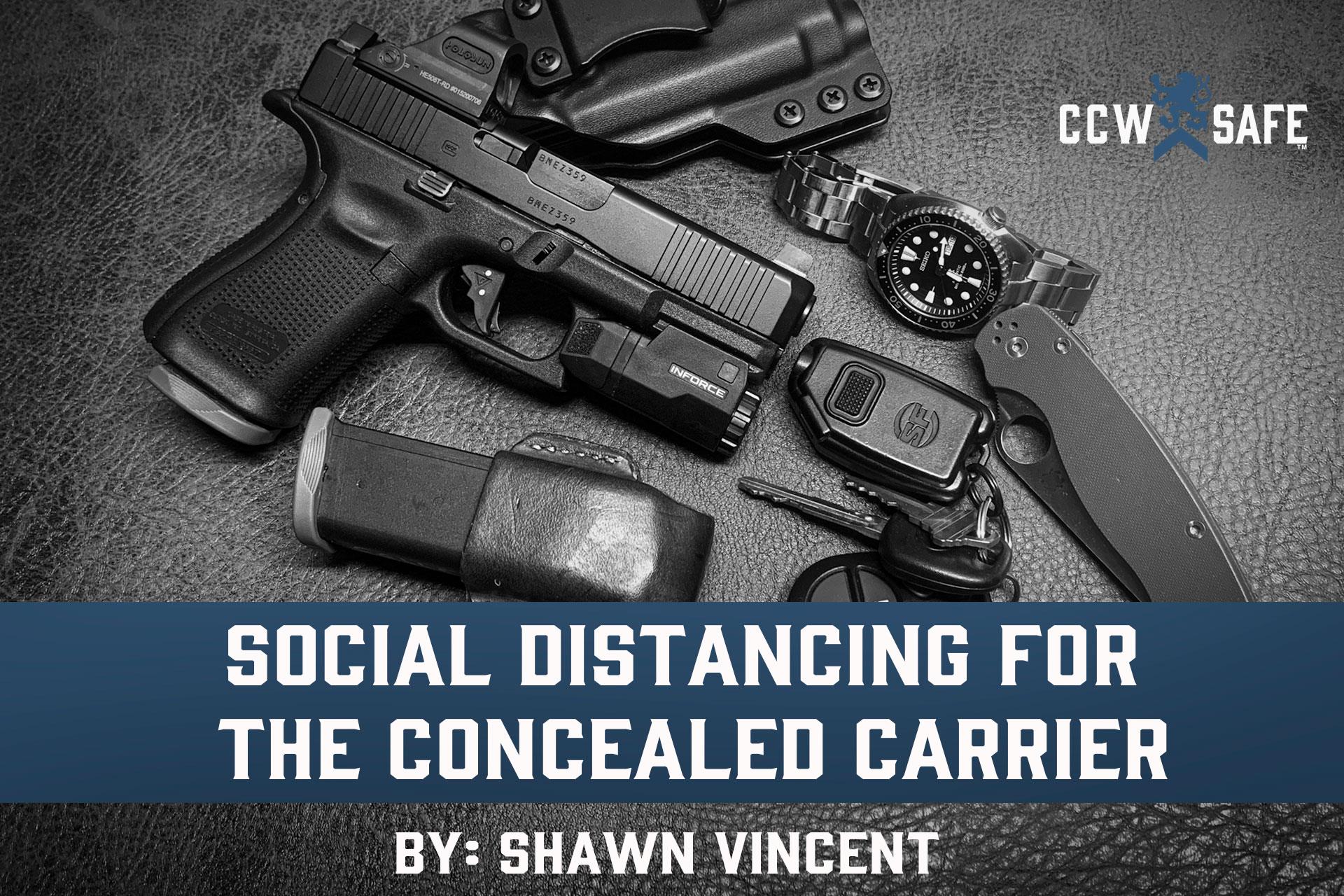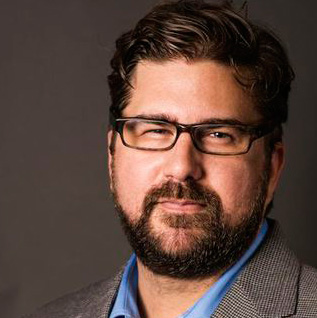
Posted on May 1, 2020
Social Distancing for the Concealed Carrier
Social Distancing for the Concealed Carrier
We write frequently about your responsibility to avoid confrontation as a concealed carrier. We’ve seen a number of instances where minor disagreements quickly escalated to deadly encounters. Michael Drejka shot Markis McGlockton after a dispute over a handicapped parking spot. Michael Dunn shot Jordan Davis during an argument over loud music. Dean Keller shot his neighbor Jeffrey Weigle while exchanging insults across their backyard fence.
Of course, not all confrontations are avoidable, and some arguments are worth having — especially when they involve the health and safety of ourselves or others.
While COVID-19 restrictions are beginning to ease up across the country, social distancing is a new cultural norm. Not everyone takes the call to wear a mask and keep their distance seriously, and that can cause problems for those who may be at high risk and fear contracting the virus. Already, we’re seeing reports of heated confrontations between citizens with different perspectives on social distancing.
In New York, an emergency room patient shoved an 86-year-old woman to the ground for standing too close to him. In Louisville, Kentucky, a man was arrested for shoving several young women for not social distancing. In Missoula, Montana, a convenience store patron became irate when another customer asked him to mind his space; he later threatened the man with a shotgun outside the store.
Aziza Ahmed, Professor of health law at Northeastern University spoke to NPR recently. “In these moments of uncertainty we all suddenly feel the need to police our own behavior,” she says, “but also police other people’s behavior as well.”
As we’ve seen, that can lead to trouble.
Not long ago, I had the opportunity to talk to Steve Moses about the added challenges social distancing can present for concealed carriers. Steve Moses is a CCW Safe contributor and an accomplished firearms instructor who has served in law enforcement. When it comes to policing social distancing, Steve says, “My opinion is that I just have to look at what my role here is. Is my role here as a concerned citizen that wants to protect myself and my family? Or am I actually charged with doing something here that is for the benefit of other people?”
If someone gets too close to you, Steve suggests politely but firmly asking for a little more space. If the person refuses, Steve says, “then I want to disengage. That is not my time to have a confrontation with someone, because I guarantee if later I end up in a fistfight with that guy, or the police get involved and I get arrested, I’m going to go, ‘I had the option of simply leaving, and I chose not to take it.’”
Don West, criminal defense lawyer and National Trial Counsel for CCW Safe notes that a prolonged encounter with someone over social distancing simply increases your potential exposure. Arguing over social distancing is a no-win scenario.
In the other circumstance Steve mentions, for someone charged with protecting the safety of others, he recommends getting law enforcement involved if the person refuses to change their behavior or if they become belligerent. Law enforcement officers “are trained, and they are empowered, and ideally, they’re more capable of dealing with such a situation than the average concealed carrier.” In the case we mentioned about the man who shoved the young women, the police issued a statement which read, “We do not advise individuals concerned about social distancing to take matters into their own hands and confront people about it, especially in any physical way.” They ask, instead, that citizens report their concerns to law enforcement.
“If there were no other options,” Steve says,” then I may very well deal with it myself. I just want to be able to clearly articulate why I did that, and I want to be very careful as to what I say and do.” Part of being careful, in this case, might involve using less-than-lethal force if a confrontation got out of control. Steve is an advocate of OC spray, or pepper spray, for dealing with an aggressor when lethal force may not be justified. Steve says, “Most people don’t have any options between a voice command and pulling a gun.” Pepper spray can be that option, and Don West reminds us that the legal risks associated with deploying OC spray are far lower than the liability that can come with simply displaying a firearm, let alone firing one.
All that said, treat OC spray seriously as a second-to-last resort. Don’t use it or threaten to use it capriciously.
Concern about COVID-19 and social distancing is sparking confrontations. As a concealed carrier, you have a responsibility to avoid these confrontations whenever possible. While it is appropriate to ask people to alter their behavior, if they refuse, it’s better to walk away rather than to escalate the argument. If you feel the violation is truly putting people in danger, it’s best to contact the authorities instead of taking matters into your own hands. If all else fails, and you feel you must intervene, having a less-than-lethal option available, like pepper spray, could prevent a deadly tragedy.
 |
SHAWN VINCENT- LITIGATION CONSULTANTShawn Vincent is a litigation consultant who helps select juries in self-defense cases, and he manages public interest of high-profile legal matters. If you have any questions for Shawn, or would like more articles like this, let us know belo |